A roofing CRM (Customer Relationship Management) software is a specialized tool designed to help roofing contractors organize their sales pipeline, manage customer interactions, streamline project workflows, and centralize important data like contracts, photos, and invoices.
Unlike generic CRMs, roofing CRMs include industry-specific features such as measurement tools, estimating templates, and integrations with accounting systems.
A Roofing CRM software is a customer relationship management system designed specifically for roofing companies to manage leads, sales, projects, and customer interactions. Unlike generic CRMs, a roofing CRM includes industry-specific tools that help contractors streamline their workflow from the first customer inquiry to project completion and beyond.
It typically covers the entire business process: capturing leads, scheduling inspections, generating and sending estimates, tracking jobs, managing crews in the field, integrating with accounting tools, and storing project documents like contracts, photos, and warranties.
Roofing CRM software helps roofing contractors:
A roofing CRM is a digital command center that helps roofers increase efficiency, shorten the sales cycle, provide better customer service, and maximize profits.
For U.S. contractors, capturing leads and documenting work digitally now defines competitive edge. A modern customer relationship management system creates a single source of truth for contacts, photos, contracts, notes, and job histories.
That clarity speeds sales, protects margins, and keeps teams aligned.
Buyers expect digital, mobile-first experiences. Companies that modernize relationship management and tracking will win more jobs, improve customer satisfaction, and protect margins.
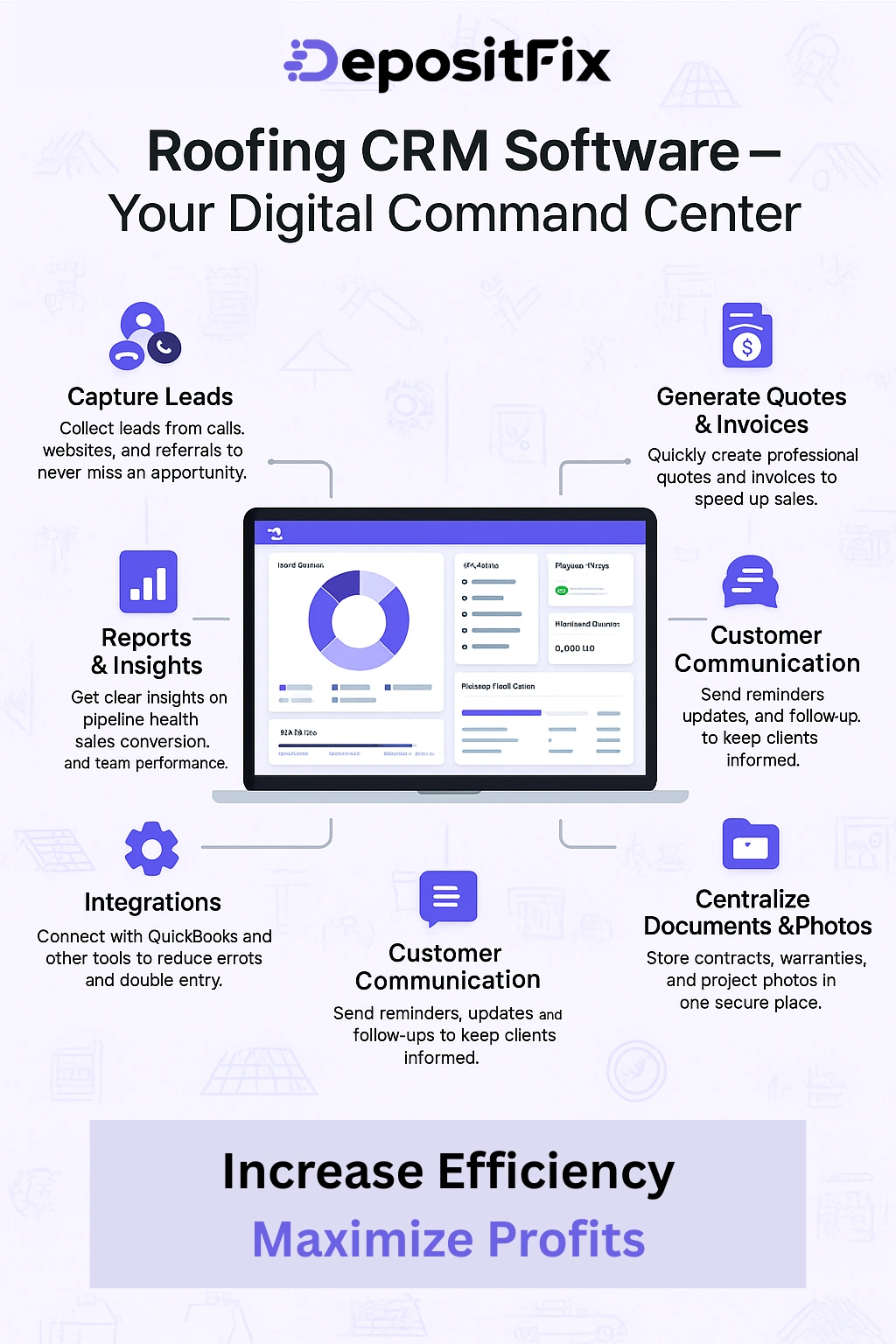
This shortlist puts ten leading tools so you can match capabilities to team size and goals.
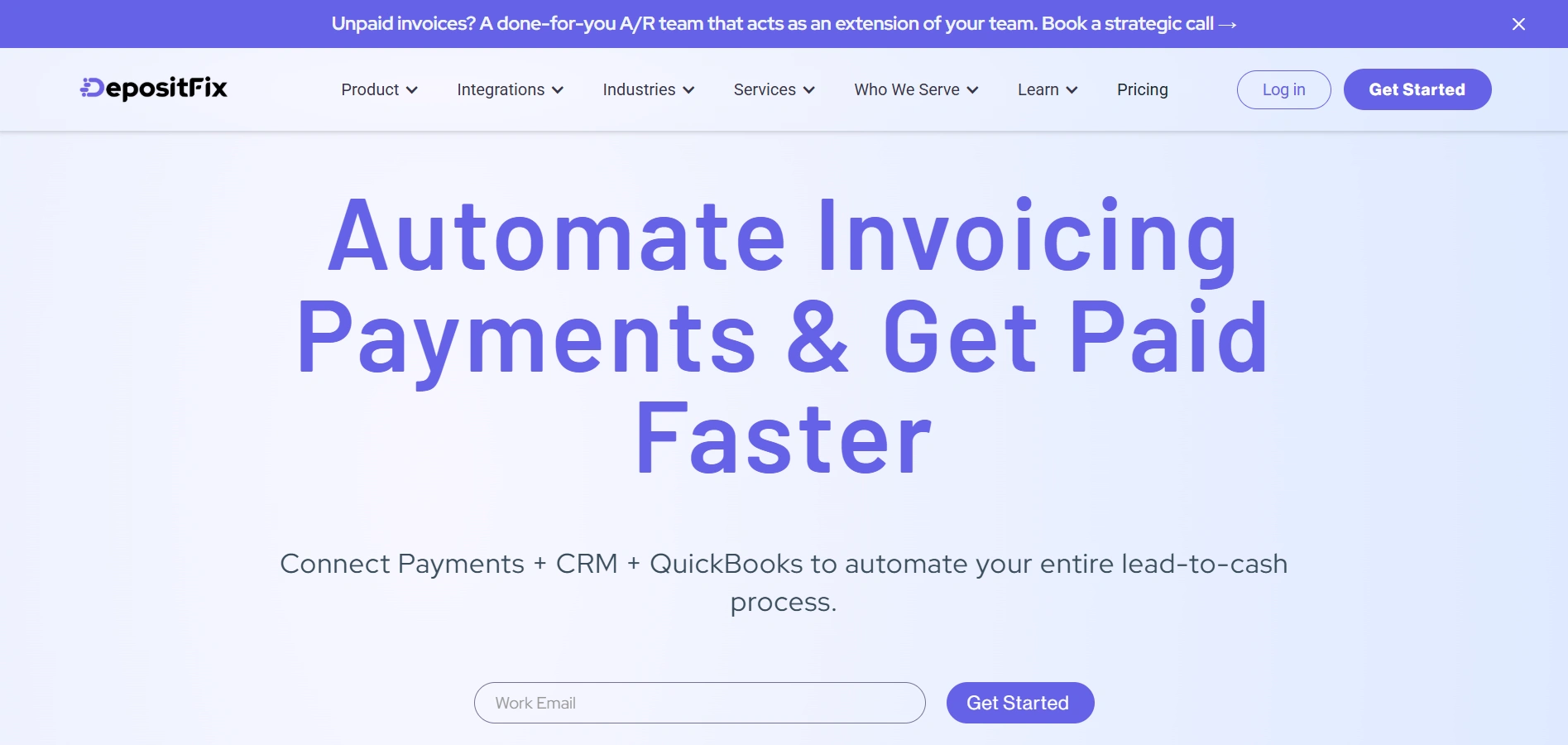
DepositFix is a payment integration tool that connects forms and CRMs with payment processors, while QuickBooks is a leading accounting software. Together, they provide roofing businesses with a seamless way to collect payments, sync financial data, and manage customer records without manual entry. This integration eliminates errors, saves time, and ensures accurate financial reporting.
Key Features
Best For: Roofing contractors who need a streamlined payment and accounting workflow. This integration is best for companies already using QuickBooks for accounting and looking to reduce administrative overhead while improving cash flow management.
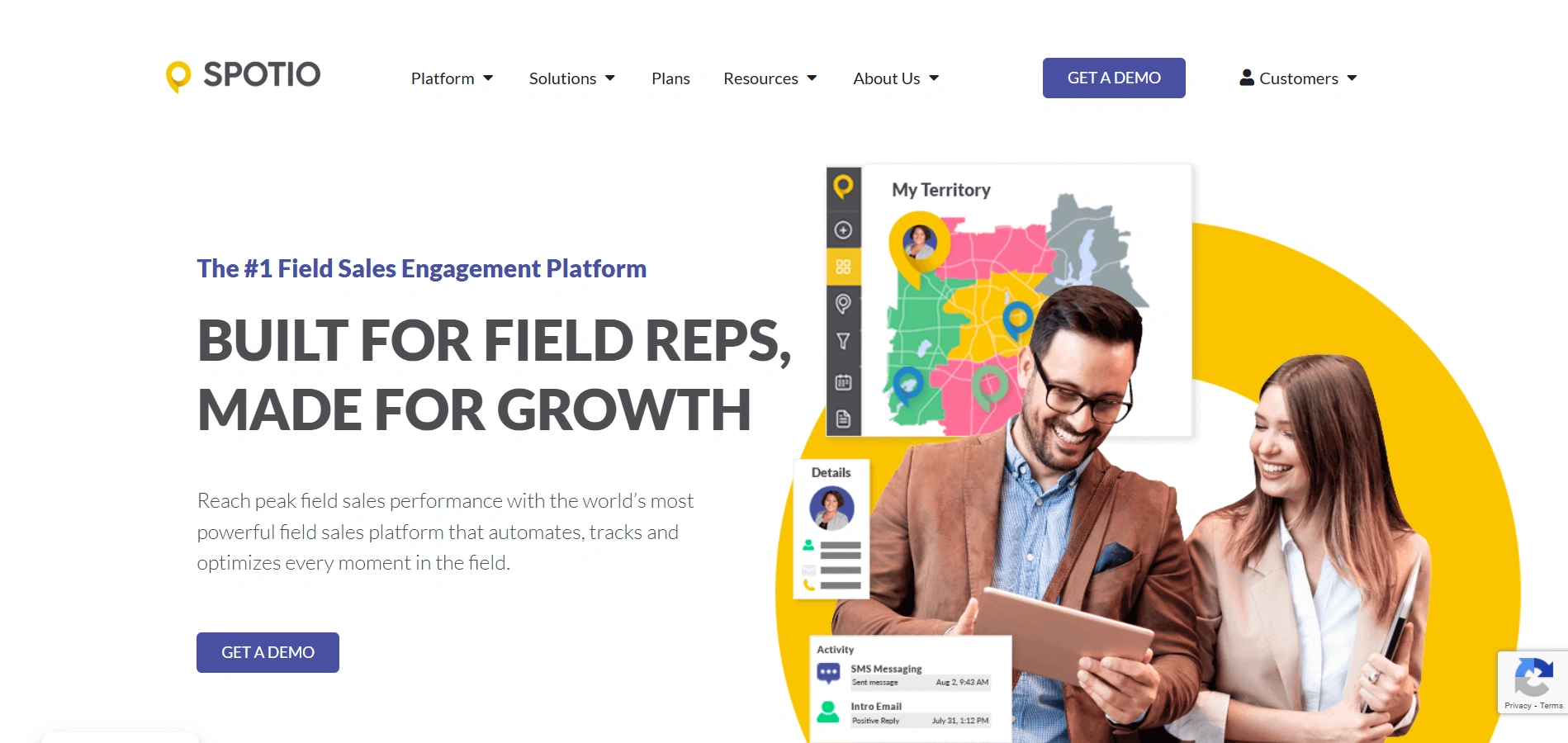
SPOTIO is a field sales and territory management CRM tailored for outside sales teams, including roofing contractors. It focuses on streamlining lead tracking, managing reps in the field, and ensuring every prospect is followed up on. Its mobile-first design makes it ideal for roofing sales reps who spend most of their time on-site or canvassing neighborhoods.
Key Features
Best For: Roofing companies with active field sales teams that need to organize canvassing, track reps’ productivity, and improve lead-to-close conversion rates.
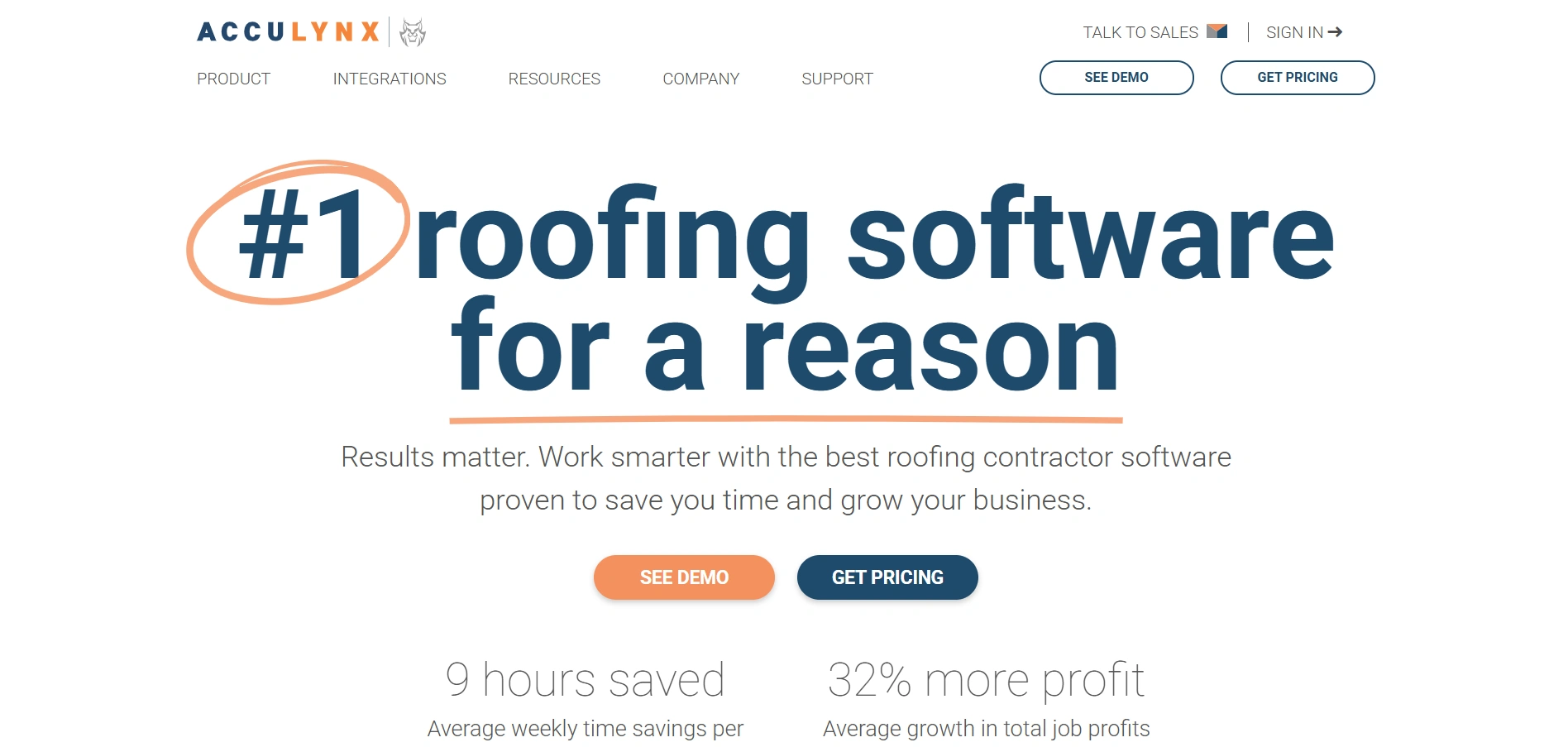
AccuLynx is an all-in-one roofing CRM and project management software built specifically for roofing contractors. It helps streamline the entire workflow—from lead capture and estimating to job scheduling, production, and invoicing—while keeping everything centralized in one platform. Designed for roofers, AccuLynx reduces administrative work and improves communication across teams.
Key Features
Best For: Roofing contractors who want a comprehensive, industry-specific CRM that covers sales, project management, and financial workflows in one system.
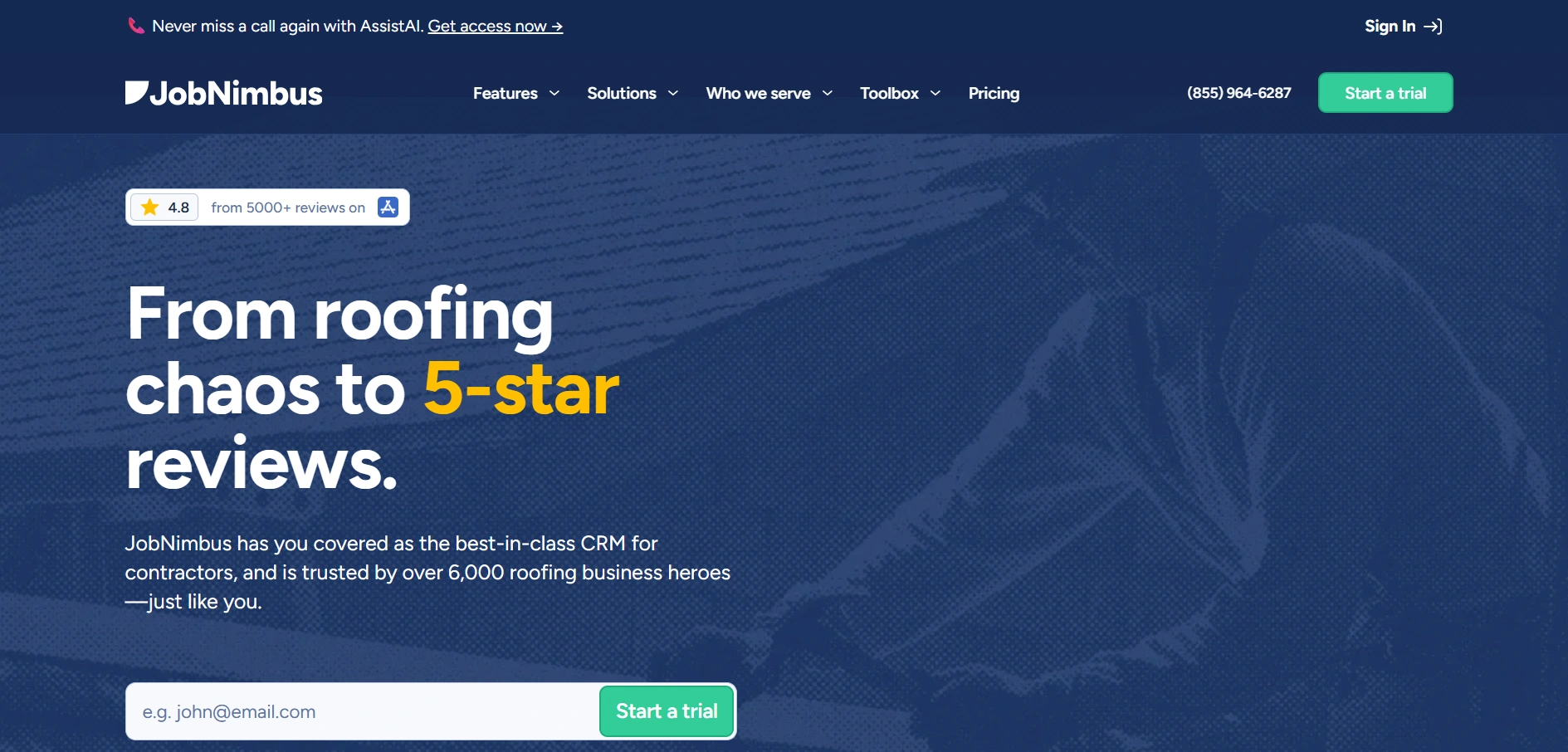
JobNimbus is a roofing CRM and project management platform designed to help contractors organize leads, jobs, and tasks in a single system. It offers flexibility with customizable workflows, making it easy for roofing businesses to adapt the software to their processes. With its mobile app and integrations, JobNimbus keeps office staff and field crews aligned.
Key Features
Best For: Roofing contractors who need a flexible, easy-to-use CRM with strong project management features and mobile accessibility to keep teams connected.
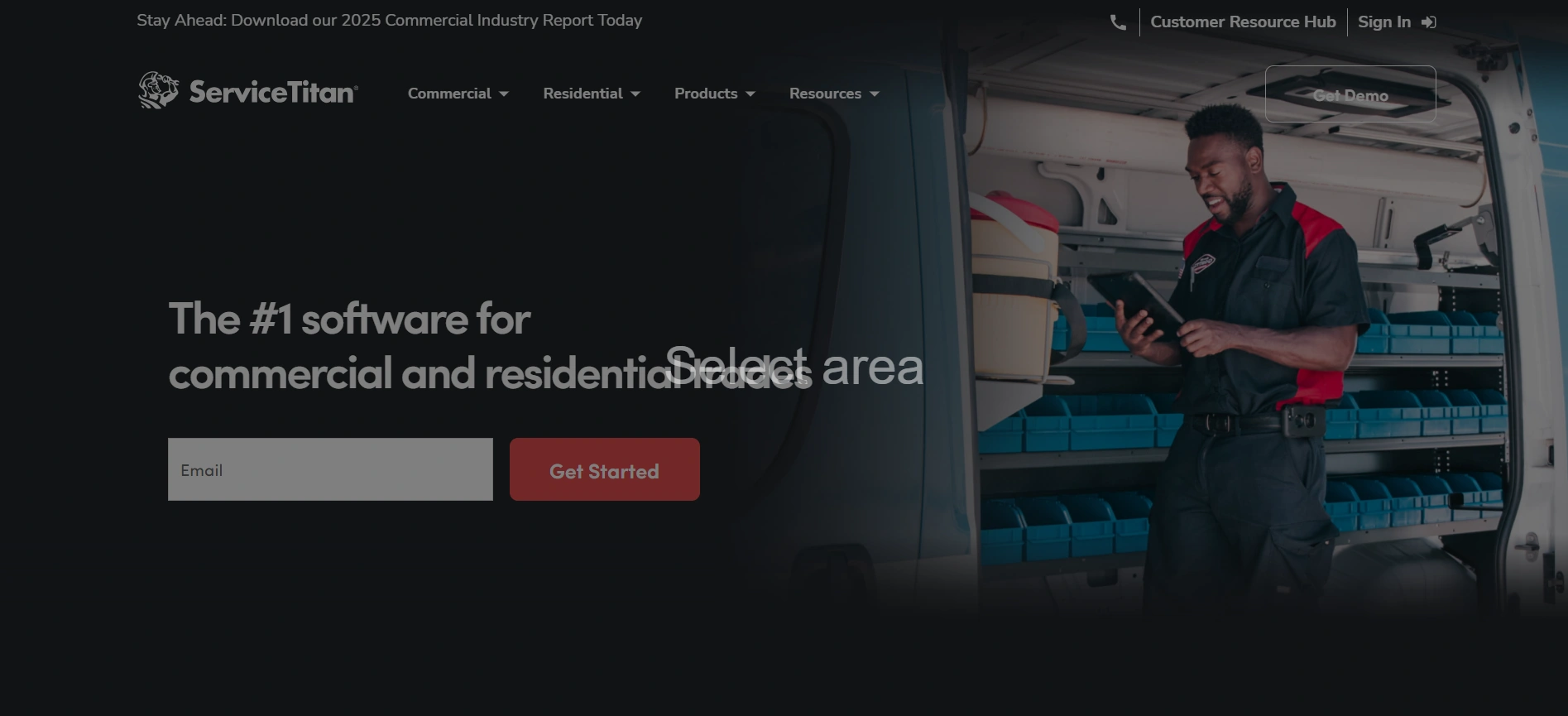
ServiceTitan is a field service management platform that extends into roofing operations with powerful CRM, scheduling, and job management features. While not roofing-exclusive, it’s widely used by contractors who want advanced tools for managing customer relationships, dispatching crews, and streamlining financial operations at scale.
Key Features
Best For: Roofing companies that want an enterprise-level platform with robust CRM and field service management capabilities to handle high job volumes and complex operations.
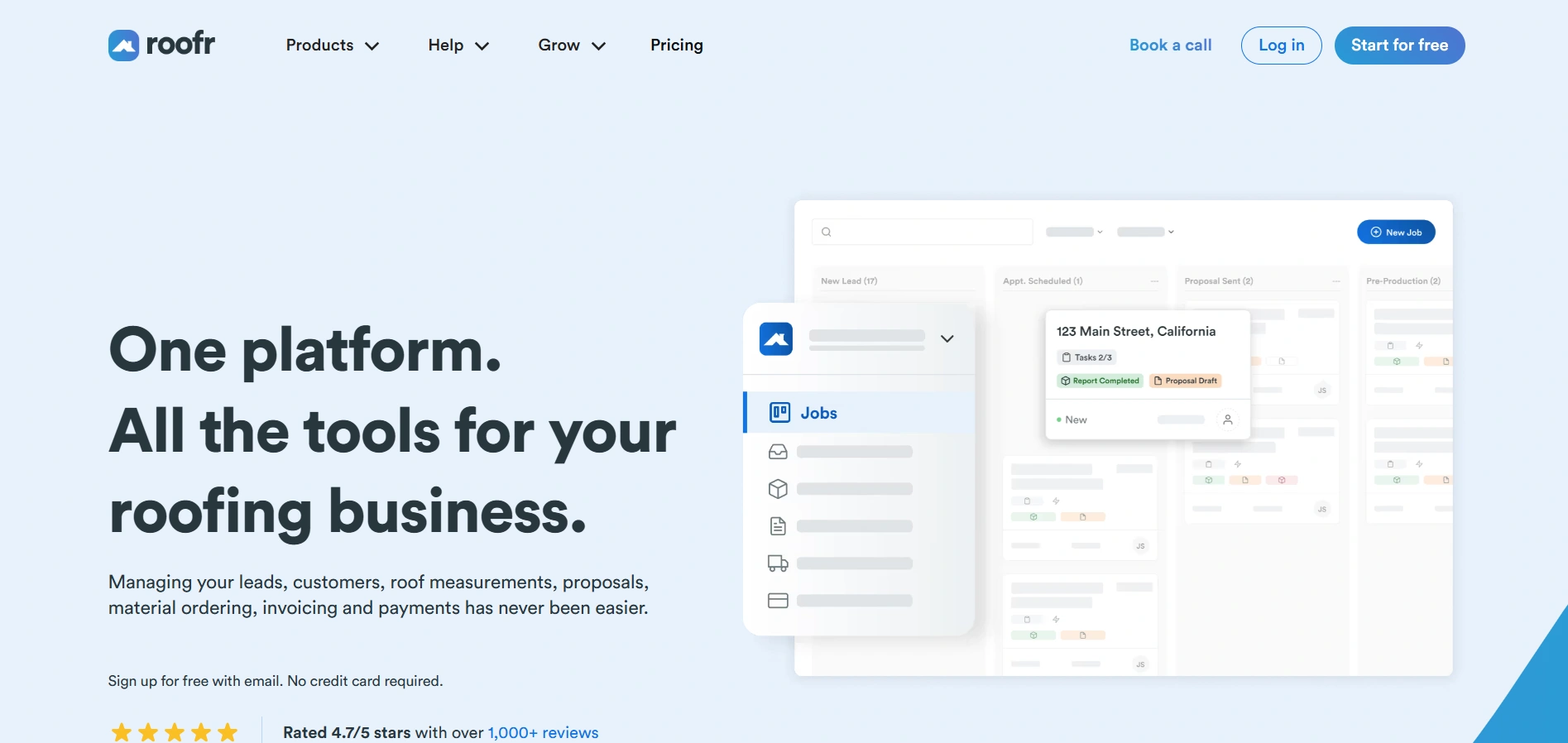
Roofr is a roofing-specific CRM and estimating platform built to simplify the sales process for contractors. It stands out with instant roof measurement reports and easy-to-build proposals that help roofers close deals faster. With its streamlined interface, Roofr helps contractors manage leads, estimates, and projects all in one place.
Key Features
Best For: Roofing contractors who want a lightweight, roofing-focused CRM that simplifies estimating and proposals while keeping projects and customer data organized.
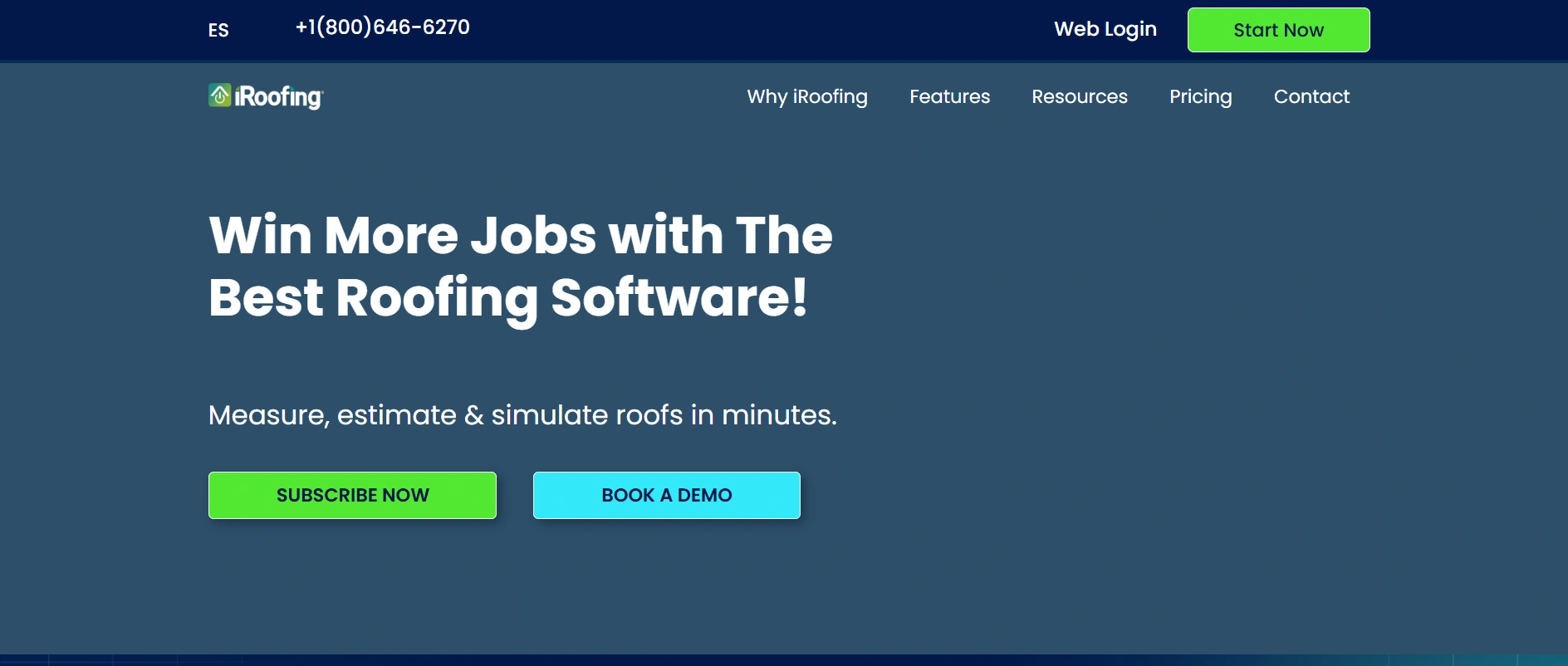
iRoofing is a mobile-first roofing software designed to help contractors with sales presentations, measurements, and project management directly from a tablet or smartphone. It focuses on enhancing the customer experience and provides professional proposals and visualizations, while also giving roofers tools to estimate and manage jobs efficiently.
Key Features
Best For: Roofing contractors who want a mobile-first solution to impress customers with on-the-spot presentations, accurate measurements, and professional proposals.
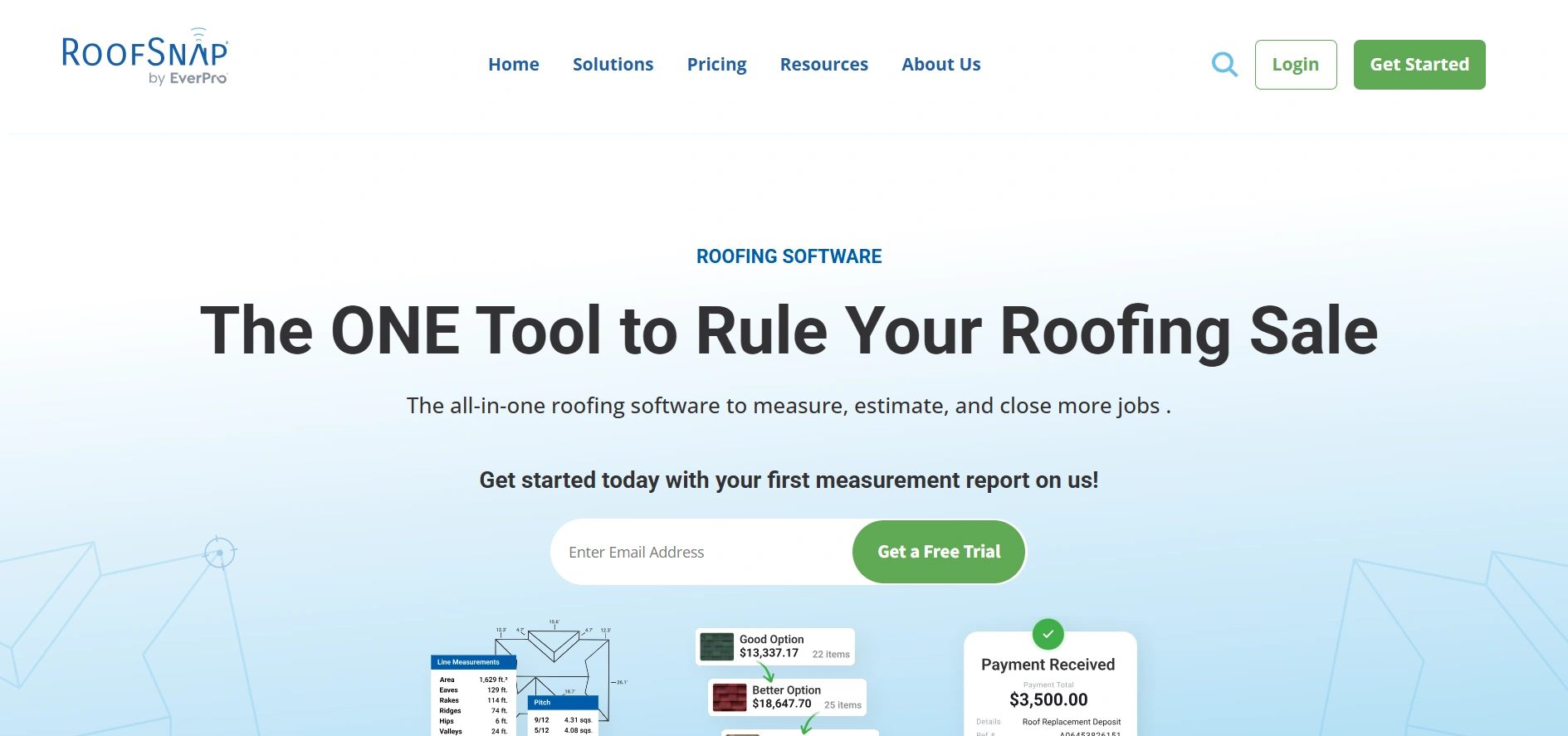
RoofSnap is a roofing software that specializes in roof measurement and estimating, with built-in CRM features to manage leads and projects. It enables contractors to quickly create accurate measurements, generate proposals, and keep customer data organized. Its focus on speed and accuracy makes it a popular choice for roofers who want to streamline their sales process.
Key Features
Best For: Roofing contractors who need a fast and accurate estimating tool with integrated CRM features to manage leads and jobs from one platform.
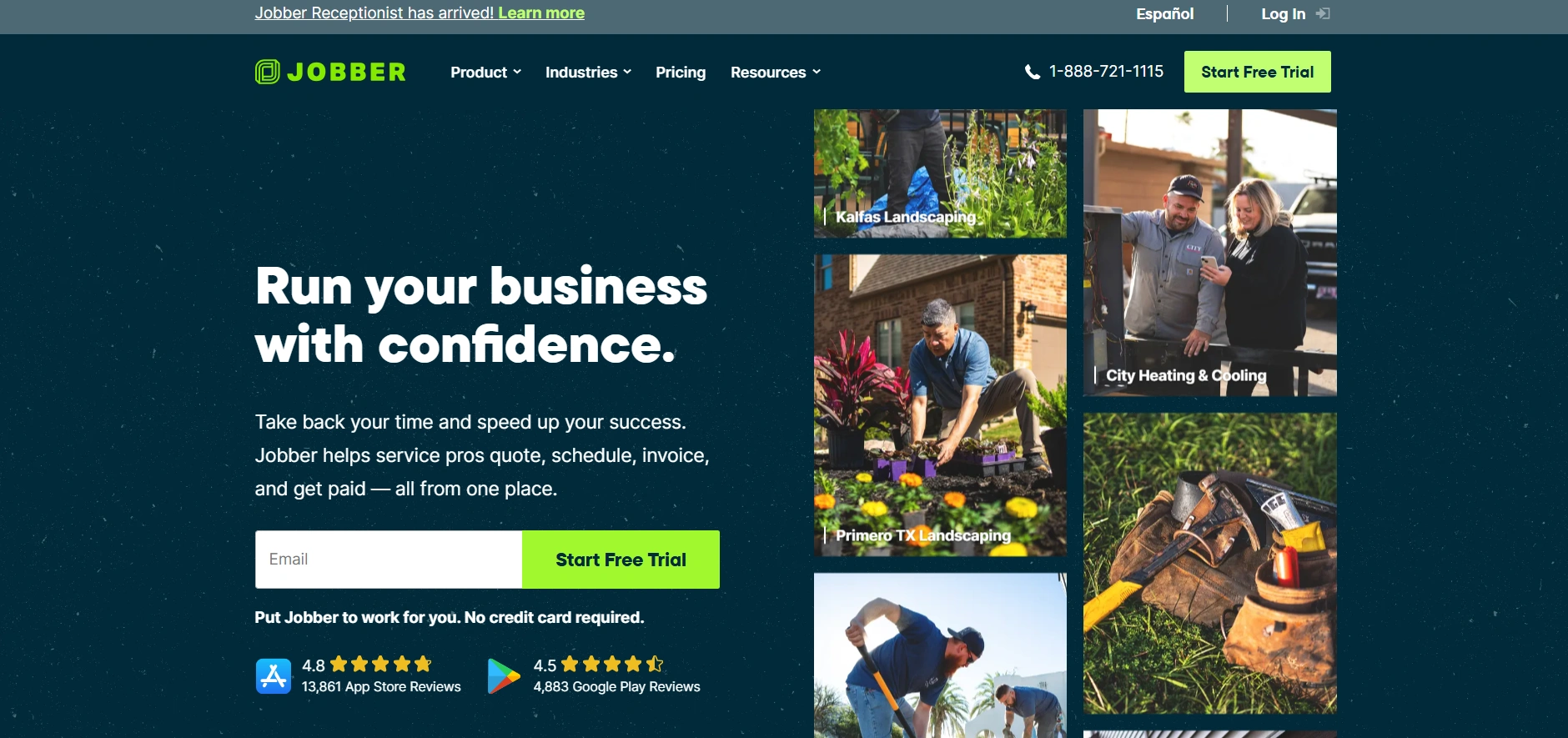
Jobber is a field service management software that supports roofing contractors with CRM, scheduling, invoicing, and payment processing. While not roofing-exclusive, it’s widely used by small to mid-sized roofing companies for its ease of use and ability to keep operations organized in one platform. Jobber helps roofing teams stay on top of customer interactions, job progress, and finances.
Key Features
Best For: Roofing contractors who want an easy-to-use, all-in-one service management tool that simplifies scheduling, customer management, and billing.
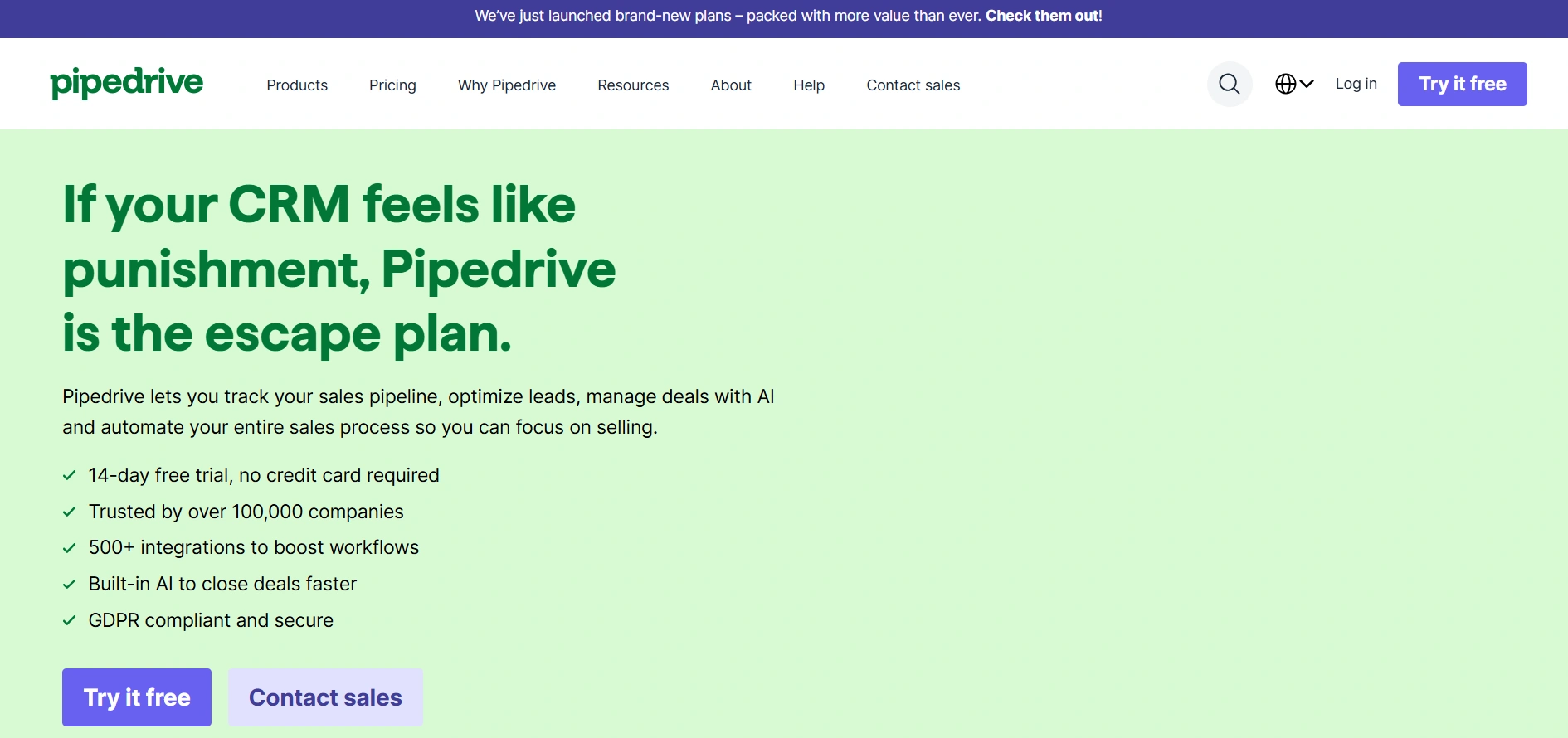
Pipedrive is a sales-focused CRM that can be adapted for roofing contractors to manage leads, track deals, and automate follow-ups. While not built exclusively for roofing, its customizable pipelines and integrations make it a useful tool for contractors who want to keep their sales process organized and ensure no opportunity slips through the cracks.
Key Features
Best For: Roofing contractors who want a flexible, sales-driven CRM to strengthen lead management and deal tracking without the complexity of a full project management suite.
When evaluating a roofing CRM, you should focus on features that align with how roofing businesses actually operate. The right platform will not only store customer data but also improve your sales process, field management, and back-office efficiency. Below are the core features that make the biggest impact.
A strong CRM should capture leads from multiple sources—calls, website forms, or referrals—and keep all customer information organized in one place. Look for tools that let you track every interaction, set reminders for follow-ups, and manage your sales pipeline so opportunities don’t get lost.
A good CRM should include built-in estimating tools or integrations with aerial measurement providers. Proposal builders with customizable templates and e-signature support help you close deals faster while presenting a professional image.
Roofing projects involve multiple moving parts—materials, crews, schedules, and inspections. The CRM should allow you to assign tasks, monitor job progress, and coordinate crews efficiently. Real-time job tracking ensures projects stay on schedule and within budget.
Your team should be able to upload photos, update job statuses, collect signatures, and communicate with the office while on-site. This keeps everyone connected and reduces delays.
From contracts and permits to before-and-after photos, roofing projects generate a lot of documentation. A CRM with secure cloud storage ensures all files are centralized, easy to access, and linked to the right project. This eliminates paper clutter and miscommunication.
Seamless integration with accounting tools like QuickBooks helps you manage invoices, payments, and financial reporting. Features such as online payments and recurring billing also improve cash flow and reduce administrative work.
To make better business decisions, you need visibility into your performance. Look for reporting features that track sales conversion rates, job profitability, and team productivity. Analytics help you identify bottlenecks and improve efficiency over time.
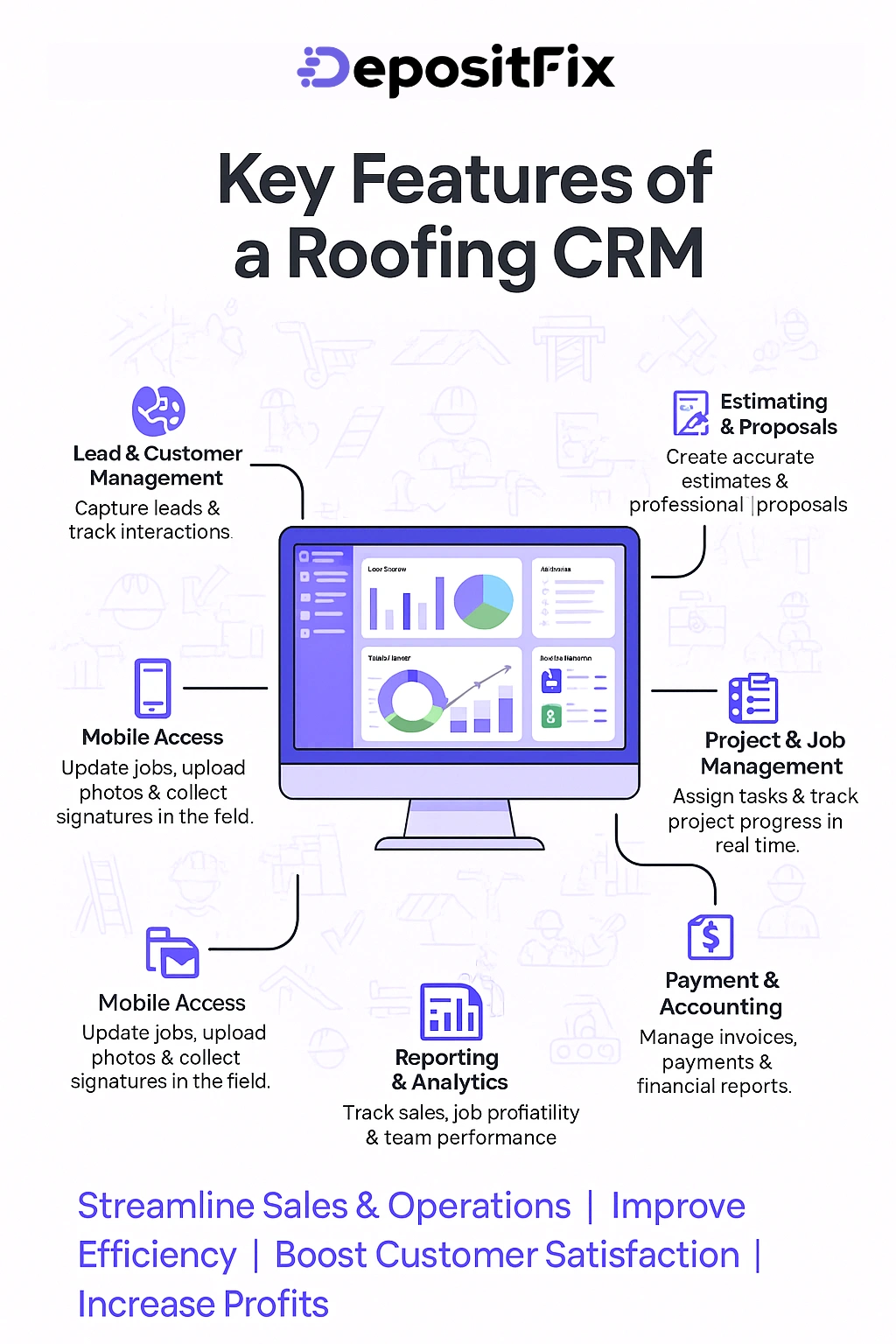
Begin with a controlled pilot. Select one territory or crew and run a 30–60 day test. Define success metrics upfront — estimate turnaround time, close rate, and days sales outstanding (DSO).
Map your current process before setup. Document lead sources, qualification steps, estimate creation, proposal delivery, and the handoff to production so the system mirrors real work.
Focus onboarding on high-impact workflows first: canvassing to appointment, measurements to estimates, estimates to proposals, and proposals to invoices. That helps reps see value fast.
Set SLAs for response times, estimate delivery, and proposal follow-up. Use tracking to enforce accountability and transparency across the team.
After the pilot, iterate: refine automations, templates, and territories, then expand company-wide with clear timelines and success criteria. This stepwise approach reduces risk and saves time for contractors and roofing companies while improving sales and field management outcomes.
To streamline payments and cash flow in your roofing business, consider DepositFix with its QuickBooks integration. This powerful combination offers a seamless solution for managing invoices, payments, and financial data, ensuring efficiency and accuracy across your operations.
Key Features of DepositFix for Roofing Companies:
Benefits for Roofing Contractors:
With DepositFix and QuickBooks, roofing businesses can achieve a more efficient and streamlined financial workflow. To see how this integration can benefit your company, book a free demo today and experience the difference firsthand.
Prioritize systems that turn measurements, proposals, and payments into one clean process so teams spend less time on admin and more time on selling and servicing roofs.
Our ten picks—from field-sales tools like SPOTIO to all-in-one platforms such as AccuLynx and JobNimbus, plus analytics suites and proposal/measurement vendors—cover those needs. The DepositFix & QuickBooks Integration Stack leads the list for faster collections and cleaner accounting.
Choose a short pilot, validate KPIs like close rate, estimate turnaround, and DSO, and scale when data shows clear operational and financial fit. Solid customer relationship management, tracked communications, and reliable integrations will improve conversions, margins, and customer loyalty.
Discover the hidden automation in your payment, billing and invoicing workflows. Talk to our experts for a free assement!
